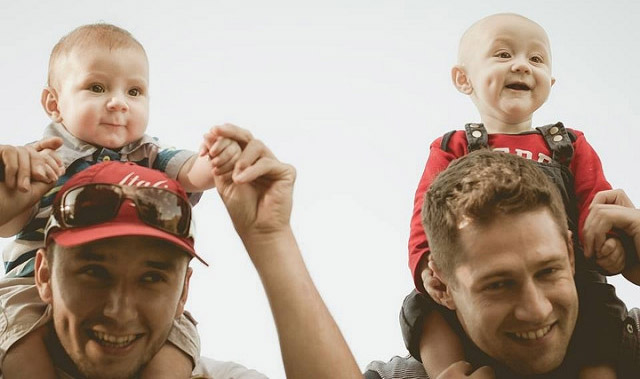By Susan Ciancio
Fatherlessness has taken a terrible toll on society. It is no surprise that children who grow up with both of their parents present in their daily lives fare much better—socially, psychologically, and spiritually—than children who have only one parent present. This is especially true regarding fathers.
According to Fathers.com, “Children from fatherless homes are more likely to be poor, become involved in drug and alcohol abuse, drop out of school, and suffer from health and emotional problems. Boys are more likely to become involved in crime, and girls are more likely to become pregnant as teens.”
While both boys and girls suffer tremendously from the absence of a father, we want to talk about young boys and how detrimental it is for them to grow up without a father.
The Institute for Family Studies writes that “lacking the day-to-day involvement, guidance, and positive example of their father in the home, and the financial advantages associated with having him in the household . . . boys are more likely to act up, lash out, flounder in school, and fail at work as they move into adolescence and adulthood. Even though not all fathers play a positive role in their children’s lives, on average, boys benefit from having a present and involved father.”
Yet throughout the country, we see fathers leaving their families and fathers not stepping up to raise a child created out of wedlock. We see neglect, disinterest in a child, and a lack of responsibility toward the life created. We see women purposely creating babies—through IVF or even naturally—with the explicit intention of not involving the father in the child’s life.
This hurts children. And it doesn’t just hurt them a little; it can destroy them, for this lack of interest, lack of involvement, and lack of love creates children who direct these feelings outward to society. As a college professor of mine once said, “Hurt people hurt people.”
Warren Farrell, PhD—an award-winning educator, author, and speaker who chairs the Coalition to Create a White House Council on Boys and Men—stresses this truth. Several years ago, he said in an interview, “Boys with dad-deprivation often experience a volcano of festering anger. Anger is vulnerability’s mask, and with boys’ much greater tendency to act out, the boys who hurt will be the ones most likely to hurt us.”
Farrell went on to say that “with minimal or no father involvement there is a much greater likelihood of video game addiction, more ADHD, worse grades in every subject, less empathy, less assertiveness (but more aggression), fewer social skills, more alienation and loneliness, more obesity, rudderlessness, anger, drugs, drinking, delinquency, disobedience, depression and suicide.”
Our society must wake up to these facts and take action to stop this tragedy from continuing. It starts with each individual, and it starts with how we raise our sons.
Fathers, be present in your sons’ lives. Talk with them, work on projects together, play sports with them, read to them, tell silly jokes. Being there doesn’t require money or prestige; being there simply requires love and time, for these actions help boys understand their value and their worth. And when they feel valued, they will be more likely to value their future children.
Men, if you know a fatherless child, step up and become a father figure. Whether you are an uncle, a brother, a cousin, a grandfather, a stepfather, a coach, or a godfather, you have a special role to play and a responsibility to be present in the lives of the boys whom you love.
It is the job of all men to break the cycle of fatherless in society. Boys need tangible examples of good men and fathers so they can learn to be good men and fathers. One of the many ways that men and boys can learn how to be good fathers is by looking to the example of the saints, especially those who understood the value of father figures. St. John Bosco is one such saint.
From the time he was young, St. John Bosco took it upon himself to lead and teach other young boys. He saw firsthand how boys without one or both parents struggled and failed to become productive members of society. On one occasion, he spoke to his mother about the misbehaving boys he spent time with. He implored her, “Mama, those boys aren’t really bad. They just don’t have a good mother like I have, and they don’t know their catechism, and their parents don’t take them to church. When I’m with them, they behave better. Please, Mama, may I go with them?”
Even as a child, John understood the importance of being a leader. And as he grew, he became a father figure to the unwanted and homeless boys of Turin, Italy. By opening a home and a school and by teaching these young men their value, their worth, and that they had something to offer society, he was able to reform those whom society deemed delinquents.
Today, we live in a society that wants to emasculate men, but we desperately need leaders who can follow St. John Bosco’s example, who aren’t afraid to be strong men, who can proudly lead their families and teach their children, and who can become a role model that young men need so they can grow up and do the same.
The statistics and the studies tell a sobering truth we cannot deny. Nor can we continue to look the other way. Young boys suffer tremendously without their fathers. It’s time we stop ignoring this fact and do something about it.
Teach your middle schoolers about St. John Bosco with the newest lesson from the Culture of Life Studies Program. You can find it here.
